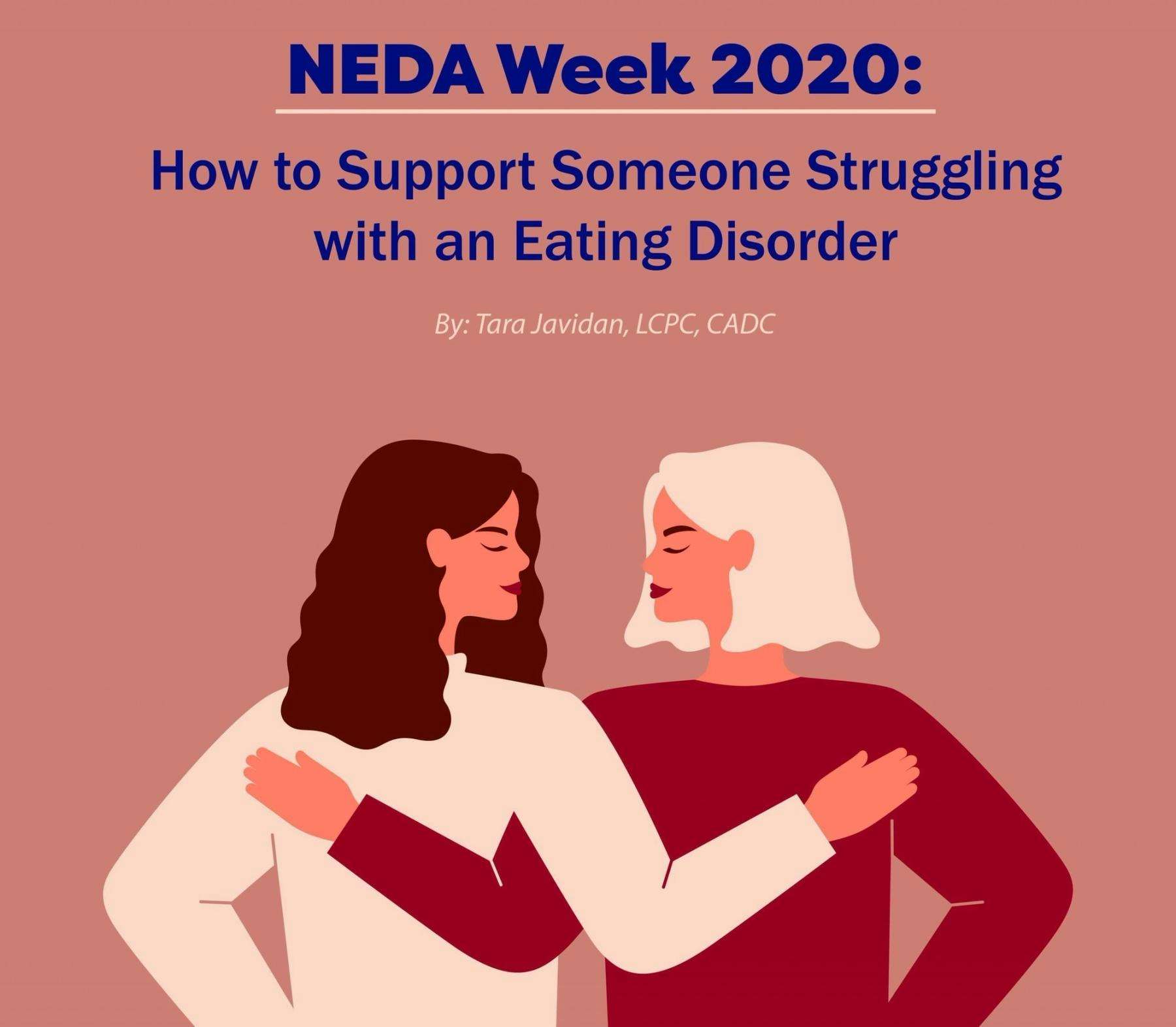February 25th, 2020

National Eating Disorder Awareness (NEDA) Week aims to shed light on a growing problem affecting people of all ages and genders around the world. Research from NEDA’s website indicates that 5.2% of women/girls ages 8-20 will meet the criteria for an eating disorder at some point in their lives. This means that it is likely someone you know, and love could be struggling.
Let’s take a look at the most common eating disorders as defined by the DSM V, (the diagnostics and statistics manual) used by psychologists/clinical therapists and psychiatrists who provide treatment for eating disorders.
Anorexia Nervosa: Restriction of energy intake relative to requirements leading to significantly low body weight in the context of age, sex, developmental trajectory, and physical health. Significantly low weight is defined as a weight that is less than minimally normal or, for children and adolescents, less than that minimally expected. Intense fear of gaining weight or becoming fat, or persistent behavior that interferes with weight gain, even though at a significantly low weight way in which one's body weight or shape is experienced, undue influence of body weight or shape on self-evaluation, or persistent lack of recognition of the seriousness of the current low body weight.
Bulimia Nervosa: Recurrent episodes of binge eating. An episode of binge eating is characterized by BOTH of the following: 1. Eating in a discrete amount of time (ex: within a 2 hour period) is an amount of food that is definitely larger than what most individuals would eat in a similar period of time under similar circumstances. 2. Sense of lack of control over eating during an episode. B. Recurrent inappropriate compensatory behavior in order to prevent weight gain, such as self-induced vomiting; misuse of laxatives, diuretics, or other medications; fasting; or excessive exercise. C. The binge eating and inappropriate compensatory behaviors both occur, on average, at least once a week for three months. D. Self-evaluation is unduly influenced by body shape and weight. E. The disturbance does not occur exclusively during episodes of anorexia nervosa.
Binge Eating Disorder: Recurrent episodes of binge eating. An episode of binge eating is characterized by both of the following: 1. Eating, in a discrete period of time (e.g., within any 2-hour period), an amount of food that is definitely larger than what most people would eat in a similar period of time under similar circumstances. 2. A sense of lack of control over eating during the episode (e.g., a feeling that one cannot stop eating or control what or how much one is eating). B. The binge-eating episodes are associated with three (or more) of the following: 1. Eating much more rapidly than normal. 2. Eating until feeling uncomfortably full. 3. Eating large amounts of food when not feeling physically hungry. 4. Eating alone because of feeling embarrassed by how much one is eating. 5. Feeling disgusted with oneself, depressed, or very guilty afterward. C. Marked distress regarding binge eating is present. D. The binge eating occurs, on average, at least once a week for 3 months.
As an eating disorder specialist, I see clients who struggle with Anorexia Nervosa, Bulimia Nervosa, and Binge eating disorder. While most of our treatment does revolve around the client, the topic of support does come up often. Clients will present areas where they feel support is needed and often they don’t know how to ask. Chicago area eating disorder specialist Amy Klimek, LCPC, CYT suggests asking your loved one opened ended questions like “how can I help you in this moment” or “What could be helpful during this meal?” Klimek also reminds support persons of the importance of remaining open during this process.
Here are some dos and don’ts in supporting those who are struggling:
Something that always sticks out to me when my clients bring it up is the frustration around hearing “well you’re healthy, you don’t LOOK like you have an eating disorder”. An eating disorder is about the relationship with the food, not body shape and weight. Eating disorders affect people of all ages, shapes, and genders. During NEDA week let's join together to support everyone who currently is or has ever struggled with this disease.
For more information on NEDA week, or to help spread the word about NEDA week, please visit NEDAWARNESS.ORG

Our Services
Virtual/Online CarePHP and IOPAdult PsychiatryChild & Adolescent PsychiatryAdult TherapyChild & Adolescent TherapyCouples CounselingFamily TherapyGroup TherapyPsychological TestingTranscranial Magnetic Stimulation (TMS)Resources
Refer a PatientCareersClinical Training OpportunitiesOur ProvidersFree Mental Health TestsCommonly Prescribed MedicationsLocationsBlogIn The NewsClarity Through CharityClarity for AllQuick Links
Patient PortalFAQsAccepted InsurancesContact us